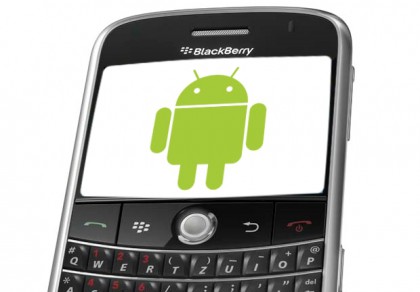RIM CEO Thorsten Heins, in an interview with the Telegraph, said the company, which has always gone its own way, producing its own hardware and software, very nearly switched to Android. He said,
“We took the conscious decision not to go Android. If you look at other suppliers’ ability to differentiate, there’s very little wiggle room. We looked at it seriously – but if you understand what the promise of BlackBerry is to its user base it’s all about getting stuff done. Games, media, we have to be good at it but we have to support those guys who are ahead of the game. Very little time to consume and enjoy content – if you stay true to that purpose you have to build on that basis. And if we want to serve that segment we can’t do it on a me-too approach.”
It’s true that with so many devices running Android it is very hard to appear “different.” Differing form factors help, but Android UI layers such as Sense, TouchWiz, and Blur also help manufacturers differentiate their devices, while at the same time contributing to Android fragmentation.
Instead, RIM could have tried to fork Android, as Amazon.com did with the Kindle, but that would have meant no Google Play. Solving that issue with RIM’s own market as Amazon.com did with the Amazon Appstore would have been a daunting task.
Also a daunting task is keeping up with Android and iOS devices in terms of price. Heins admitted that RIM simply can’t compete on price. He added,
“We don’t have the economy of scale to compete against the guys who crank out 60 handsets a year. We have to differentiate and have a focused platform. To deliver BB10 we may need to look at licensing it to someone who can do this at a way better cost proposition than I can do it. There’s different options we could do that we’re currently investigating.”
The firm recently announced that BlackBerry OS 10, its latest platform, would slip into Q1 2013. It was bad news for a company that trails iOS and Android badly, and the big question is: will it slip again?

